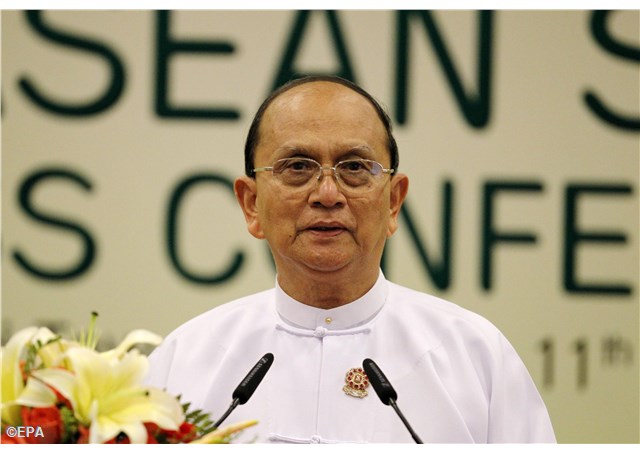
Myanmar Government publishes draft of religious conversion bill

Myanmar State-run newspapers on Tuesday published a draft of the bill which is part of a package of proposed legislation to “protect race and religion” in the Buddhist-majority country. The government is asking for public feedback on the controversial religious conversion bill that many activists have condemned as restrictive and undemocratic.
The government says the religious conversion bill, drafted by the Ministry of Religious Affairs, is intended to prevent forced conversions. According to the draft, forcing someone to convert to another religion would be punishable by one year in prison, while insulting another religion would be punishable by between one and two years in prison.
But activists in Myanmar have raised alarm over the restrictive nature of the bill, which also requires people to seek permission and register with local government authorities before converting. According to the draft bill, authorities would ask several questions about an applicant’s reasons for changing faiths. Approval or rejection of the conversion request would occur within 90 days.
Myanmar’s Constitution guarantees freedom of religion. However, the country has seen a surge of anti-Muslim violence in recent years, while a growing movement of Buddhist monks has urged people to shun Muslim businesses. Some observers see the government’s attempts to “protect race and religion” as a way to specifically stop Buddhist women from converting to Islam if they marry a Muslim man.
Some monks have spoken against discrimination, including Mandalay-based U Kavira, who cautioned against passing any bill that negatively targets religious minorities.
Myanmar Archbishop Charles Maung Bo of Yangon last April had said that the proposed laws on "the protection of race and religion" are unnecessary, and warned against the state interfering in an individual's right to choose their religion. Archbishop Bo had told ucanews.com that such rules risked dialing back religious freedom in Myanmar at a time when citizens are gaining freedoms in most other areas.
A nationalist movement led by Buddhist monks last year had lawyers draft a package of legislation to regulate interfaith marriage, religious conversion and population growth, backed by a petition with more than 1.3 million signatures. The government of the country's reformist president, Thein Sein, is now drafting laws based on the proposal, which is targeting the Buddhist-majority country’s Muslim minority.
The most controversial law being proposed would require a Buddhist woman to have her marriage sanctioned by local authorities, her parents and in-laws before marrying a non-Buddhist. Her husband also would be required to convert to Buddhism.
New York-based Human Rights Watch in the month of March had slammed as "discriminatory" the then proposed Myanmar law restricting interfaith marriage, warning it would deepen sectarian divides in the Buddhist-majority country as well as threaten religious freedom and women’s rights. The Rights group had called for Thein Sein and Myanmar's Parliamentary Speaker Shwe Mann to reject the proposal, saying it contained measures "seriously jeopardizing women’s autonomous decision making and their freedom to start a family of their choice".
"It is shocking that Burma is considering enshrining blatant discrimination at the heart of Burmese family law," Brad Adams, Human Rights Watch's Asia director said in a statement. "This law would strip away from women their right to freely decide whom to marry, and would mark a major reversal for religious freedom and women’s rights in Burma."
However, Myanmar’s popular opposition leader, the Nobel Peace laureate Aung San Suu Kyi, who has come under international criticism for not strongly condemning anti-Muslim sentiment in the country, has called the proposed law a "violation of women's rights and human rights".
Also proposed is a measure to legally regulate conversion from Buddhism to another religion. "Conversion is an individual freedom," Archbishop Bo said. "They cannot force anybody to become one religion or the other. Even the pope said we have to respect even the atheist who doesn’t profess any religion. I think we have to respect the conscience of each one. We cannot force them to join one religion or the other; not the parents, not the state, not the monks."
The proposed laws would also attempt to restrict population growth. The Myanmar government has already enacted policies aimed at limiting Rohingya families to two children.
"All these areas I don’t think anyone can impose on anyone," said Archbishop Bo, adding that such laws could jeopardize new freedoms, mainly the newfound ability of Myanmar citizens, with some restrictions, to hold public demonstrations. "If we restrict these, it’s not democracy," he said. The drafters also want laws to limit the number of wives a man can take, even though polygamy is already illegal under Myanmar law.
| All the contents on this site are copyrighted ©. |


